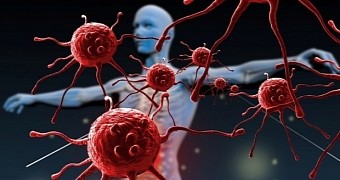You know how they say we're never truly alone? Well, we most certainly aren't. We actually share our body with an army's worth of microorganisms. Not to freak you out or anything, but scientists estimate there are about 100 trillion microbes living either inside us or on our skin.
Of these microorganisms, millions break free from our body each and every day, and come to form what researchers at the University of Oregon call a cloud of bacteria in the air that surrounds us. Plainly put, it looks like we all have a microbial aura.
This microbial aura is unique to each individual
In a study published in the science journal PeerJ this Tuesday, the University of Oregon research team explains how, having carried out some experiments with the help of volunteers, they found that the microbial cloud we all have following us around is unique to each individual.
This is because different people share their body with different bacteria populations. Consequently, the clouds formed by such microorganisms differ depending on whom they came from.
“We each give off millions of bacteria from our human microbiome to the air around us every day, and that cloud of bacteria can be traced back to an individual,” explains Phys Org.
As part of their study, the scientists had 11 volunteers spend some time alone in sanitized rooms. They then tested air samples taken from these rooms and found that, judging by the microorganisms they pinned down, they could match most of the volunteers with their rooms.
“We were surprised to find that we could identify most of the occupants just by sampling their microbial cloud,” study lead author James F. Meadow said in a statement.
“Our results confirm that an occupied space is microbially distinct from an unoccupied one, and and demonstrate for the first time that individuals release their own personalized microbial cloud,” the scientist and his colleagues went on to comment on their investigation.
The discovery is not without its uses, the team explains
In their report in the journal PeerJ, the University of Oregon specialists behind these experiments explain that, now that we know that each human has their own microbial cloud, it might be easier for medical experts to track the spread of infectious diseases.
The discovery could also come in handy in the field of forensics. Thus, law enforcement officers could turn to sampling the air in a building or a room to try and figure out who has been there lately.

 14 DAY TRIAL //
14 DAY TRIAL //